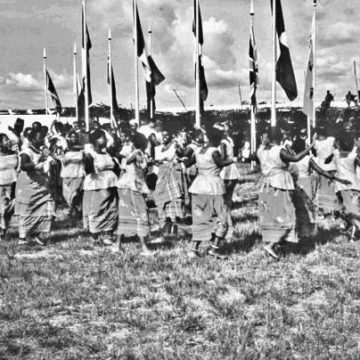
Few moments in history shine as brightly as the triumph of a nation gaining its independence. One such historic event occurred in 1960 when Nigeria emerged from the shadows of British colonial rule to become a sovereign nation. This significant achievement marked the culmination of decades of struggle, determination, and the unyielding spirit of the Nigerian people. In this article, we delve into the remarkable journey of Nigeria towards independence in 1960 and the profound impact it had on the nation and the African continent.
Colonial Legacy: Nigeria Under British Rule
For nearly a century, Nigeria, a diverse nation with a rich cultural tapestry, had been under British colonial rule. The colonial period brought both development and exploitation, shaping the socio-economic and political landscape of the region. As the 20th century progressed, calls for independence grew louder and more fervent.
The Road to Independence: A Struggle for Self-Determination
The path to independence was neither swift nor easy. Nigerian leaders and activists, including figures like Nnamdi Azikiwe, Obafemi Awolowo, and Ahmadu Bello, played pivotal roles in advocating for self-determination and unity among the country’s diverse ethnic groups. They organized movements, protests, and negotiations, pushing for the end of colonial rule and the establishment of a sovereign nation.
A Pivotal Year: 1960 – Nigeria’s Declaration of Independence
On October 1, 1960, the dream of a free and independent Nigeria became a reality. In a ceremony filled with hope and anticipation, Nigeria’s first Prime Minister, Sir Abubakar Tafawa Balewa, proclaimed the nation’s independence. The Union Jack was lowered, and Nigeria’s green-white-green flag was hoisted, symbolizing the birth of a new era.
Challenges and Triumphs: Forging a Nation
Independence brought with it a host of challenges, including the need to build a strong and united nation from the diverse ethnic and regional identities that comprised Nigeria. The nation grappled with issues of governance, democracy, and economic development, but through resilience and determination, Nigeria continued to progress.
Legacy and Pan-African Inspiration
Nigeria’s independence had a profound impact on the African continent. It inspired other nations across Africa to pursue their own journeys toward self-determination. Nigeria became a key player in the pan-African movement, supporting the decolonization efforts of other African nations and championing the cause of African unity.
Conclusion: The Flame of Independence
The year 1960 remains etched in the collective memory of Nigeria as a time when the nation took its destiny into its own hands. Nigeria’s journey to independence was a testament to the unwavering spirit of its people and the power of collective determination. As the nation continued to navigate the challenges of nation-building, it became a beacon of hope and inspiration for others on the African continent seeking to break free from the shackles of colonialism. The flame of independence that was kindled in 1960 continues to burn brightly, illuminating Nigeria’s path toward a brighter future.
